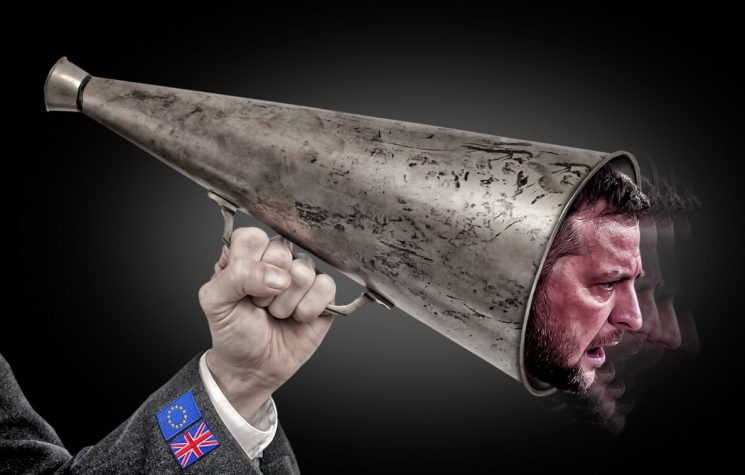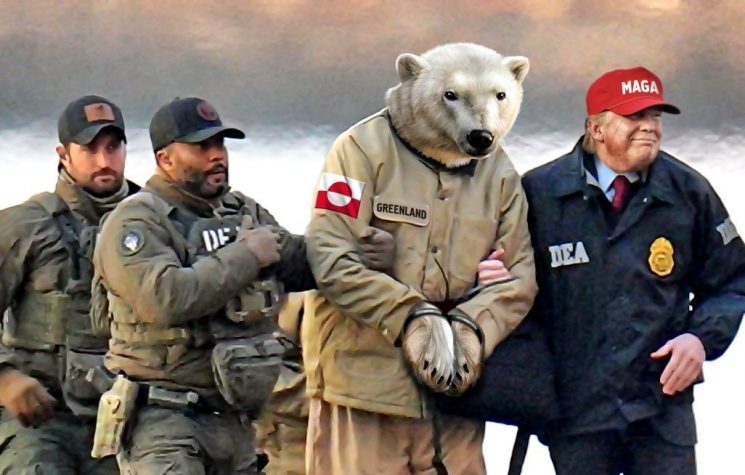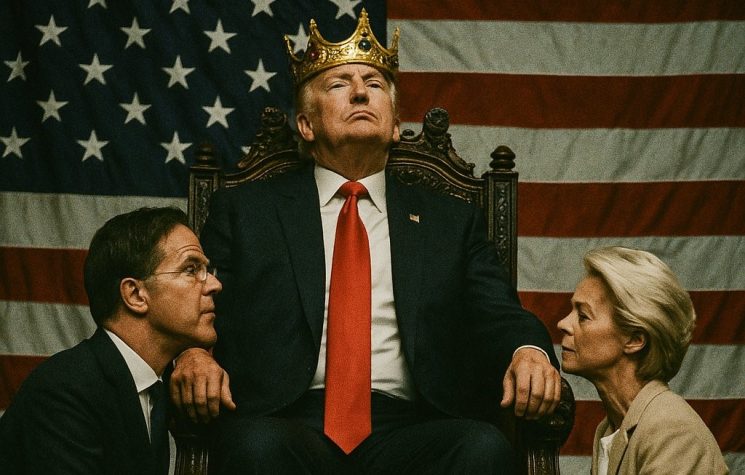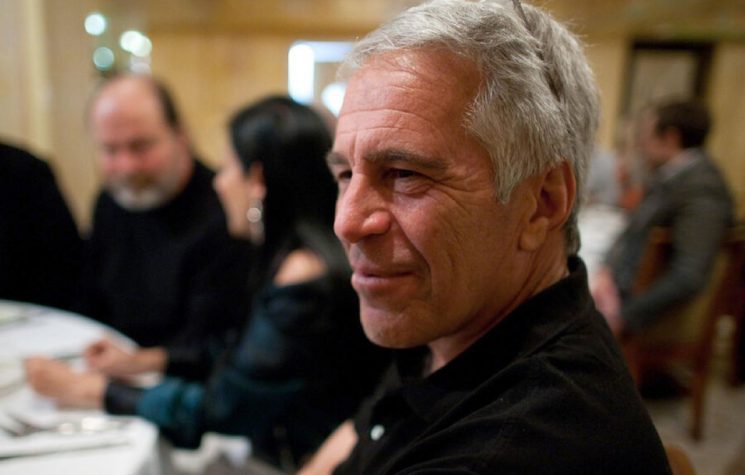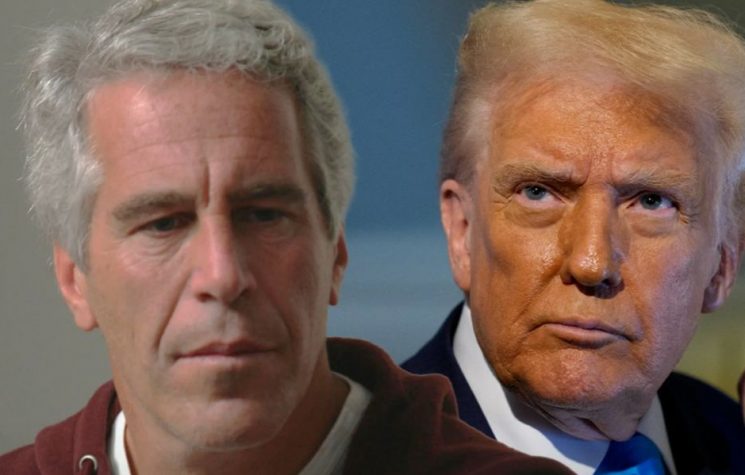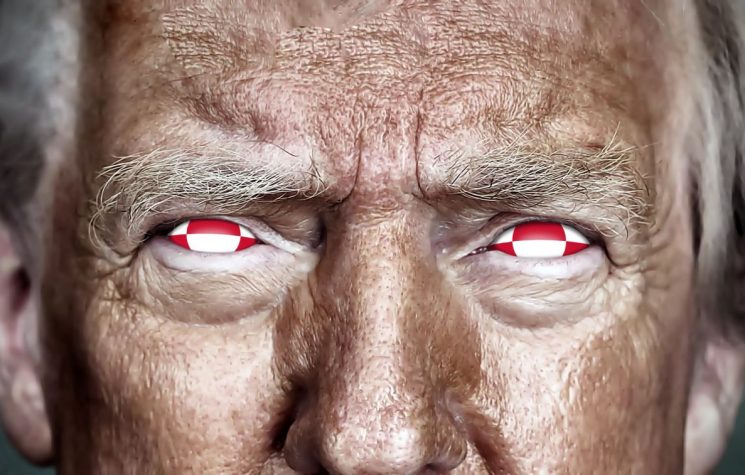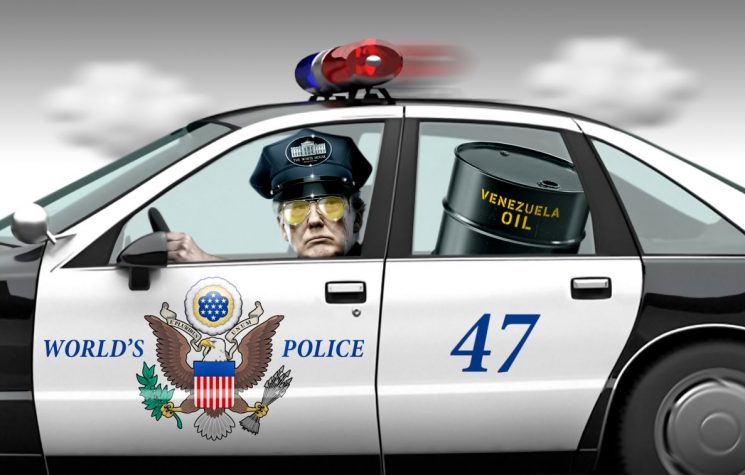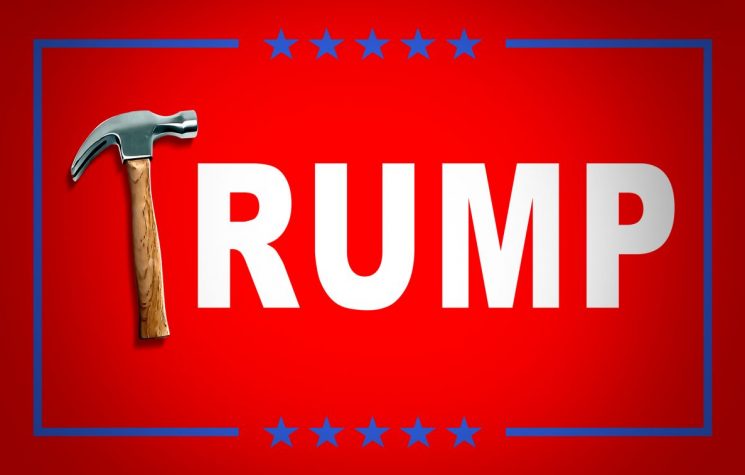The European Union’s leaders have reasons to drown in anxiolytics, but they cannot blame Trump.
Contact us: info@strategic-culture.su
In a mirror reflecting its own state of mind, the neoliberal regime’s media and its commentary apparatus repeatedly self-diagnose that the European Union is suffering from “anxiety” as Donald Trump prepares to assume the presidency of the United States.
There seems to be no reason to doubt this. Pharmacy professionals could likely confirm it by assessing the depletion of their anxiolytic stocks, inadvertently benefiting the monopolistic grip of large pharmaceutical companies.
This situation invites a preliminary observation: the decadent political caste of the European Union, so arrogant toward its own people, is ultimately a bundle of fears in the face of its masters. The change in leadership at the helm of the most visible and representative of these masters has only heightened their unease.
Indeed, the best explanation for the anxiety gripping the formally elected governments and the unelected bureaucratic mafia of the European Union appears to be a sense of orphanhood following the departure of Joseph Biden—a demented, corrupt, and warmongering boss to whom European leaders bowed during visits or when he deigned to issue command orders on his presidential missions.
Instead of the comfort Kamala Harris might have offered had she been chosen, they now fear Donald Trump as a stern stepfather who could leave them defenseless in a world increasingly eager to torment those who have so meticulously tended to their charming little garden in Borrell.
Do European governments, for whom “allies” is synonymous with “servants,” fear further degradation? Could they be reduced to pariahs and paupers, forced to scavenge through the pestilential waste they themselves have created, defenseless against the “barbarians” they so often decry?
If so, their frantic rush to anxiolytics is more than justified. The servant caste, accustomed to carrying out mischief worldwide while expecting a share of the spoils, now faces the terrifying prospect of having to fund its own defense—or pay a far steeper price for it.
Trump, the realistic stepfather
The authoritarian European rulers, increasingly careless with their lies and governed by low ethics, are beginning to grasp the difficult times ahead. Yet, in several strategic international matters, their fears may be premature.
Though they are nonentities in real history, they need only revisit Trump’s first term to find reasons for calm. For instance, Trump invented a fascist president in Venezuela and orchestrated coup attempts there. European leaders, ever uneasy with electoral processes that defy their dogmatized norms, can rest assured that the new/old U.S. president will likely resume such efforts, reinstating the mentor of South American death squads who lost the last election. Brussels and the 27 have nothing to worry about.
There is also no indication that Trump will ease the blockade against Cuba, revive the idea of a referendum on Western Sahara’s national rights, or neutralize terrorist groups like al-Qaeda or ISIS—groups so useful for the “interests” of the 27 in proxy missions, as seen recently in Syria.
Trump’s brief sponsorship of rapprochement between North and South Korea has faded, with normality—and even a pro-American coup in Seoul—restored. Thus, there is no cause for alarm in the European Union.
A special note on the so-called “Israeli-Palestinian issue,” a euphemism for genocide and ethnic cleansing by those who champion human rights yet turn a blind eye to rivers of blood. Zionist racism defends “our interests,” “our civilization,” and the “humanist tradition” in the Middle East. Here, too, European anxieties are unfounded: Netanyahu and his revisionist Zionists will continue to enjoy impunity, emboldened to pursue their eternal hope of war against Iran.
The announced ceasefire in Gaza may stir tensions within the Zionist leadership, but it will ultimately yield to the strategy of annexing occupied territories. The European Union can remain quiet, occasionally issuing token protests, confident that Israel’s defense of “our civilization” will proceed undisturbed. After all, as the Zionist ambassador in Lisbon reassures, there is no hunger in Gaza—only “fat people.” Could it be that extermination operations cause obesity?
Moreover, Trump’s idea of emptying Gaza to create a “Riviera” on its Mediterranean coast ensures that Nazi-Zionism stands to gain from his presidency.
In these and other matters, the European Union’s anxieties stem from prosaic roots, unrelated to Trump. They arise from the artificial, opportunistic, and ultimately totalitarian nature of “European integration,” a sinking ship for which the EU alone is responsible.
Trump, as the operational leader of the empire, will apply the “rules-based international order” but will also leave his mark, developing his own strategies—as seen in Ukraine—much to the concern, if not panic, of the “allies.”
Nationalism and globalism
Emperors have always had their whims, and Trump is no exception. A nationalist in his vision of a “great America,” he seeks to reorganize the U.S. internally to dominate the planet without indulging allies, forcing them to shoulder their own defense.
He is also a globalist, but not in the neoliberal sense of a borderless, privatized planet governed by a faceless elite. For Trump, the global planet will have borders—those of the United States, which will decide everything. Though not a Republican apparatchik like the Bushes, he is surrounded by figures like Marco Rubio and Elliott Abrams, aligning with the Wolfowitz Doctrine: no power, not even the European Union, can be allowed to rival the U.S.
The most delicate issue, as always, is NATO. While Trump may lack affection for the alliance, it survived his first term and even saw improved finances as members met his demand to contribute 2% of GDP—now trending toward 5%. Macron’s declaration that NATO was “brain dead” and Germany’s diminished influence have left the EU comatose, as evidenced by the inconclusive Paris meeting on February 17.
NATO remains the imperial military instrument, and Trump has no reason to devalue it. However, he is less willing than his predecessors to burden the U.S. with Europe’s defense costs, much to the despair of the EU’s mediocre leaders.
The crux of the matter
The situation in Ukraine highlights the EU’s predicament. If Europe insists on defending Zelensky’s failed Nazi-Banderism “until victory,” that is its choice. Trump, however, is pursuing his own strategy, normalizing relations with Russia and sidelining the EU and Zelensky.
With their arsenals depleted after sending modern weapons to Ukraine, European nations must now rearm, buying what they need—and what they don’t—from NATO suppliers at prices set by the U.S.
Trump’s presidency shatters the illusion that the U.S. will always defend Europe from Russian threats. These are different times, and the EU, on its way to an announced death, has no place in them.
Conclusion
The European Union’s leaders have reasons to drown in anxiolytics, but they cannot blame Trump. Their anxiety stems from their own behavior: their disrespect for their people, their corruption of democracy, and their inability to govern with transparency and truth.
The result is the unfolding tragedy sweeping across Europe—isolated, incapable, deindustrialized, and irrelevant in a world undergoing profound changes.

















